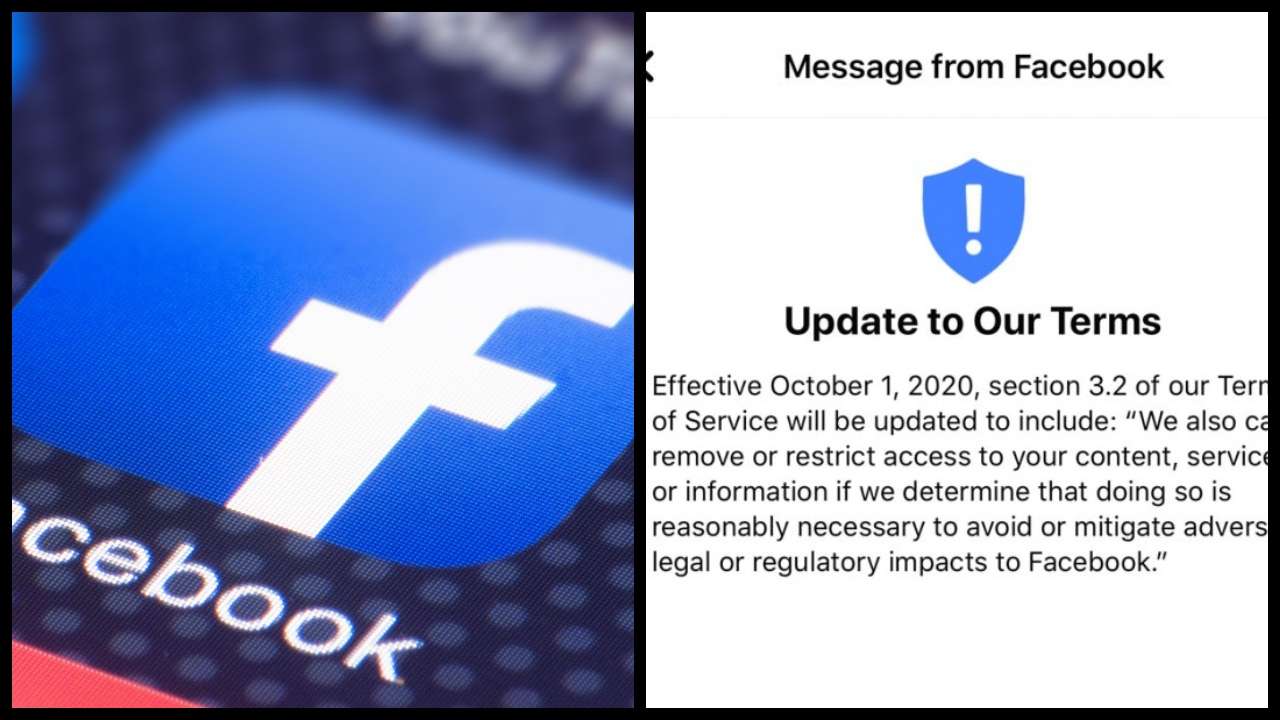Facebook to update terms of service to avoid legal ramifications; here's what it means
Facebook is updating its terms of service which will allow the social networking giant to restrict access or remove content if it determines removing a post is "reasonably necessary to avoid or mitigate adverse legal or regulatory impacts."

Facebook users across the nation received a notice regarding new terms of service which will allow the social networking giant to restrict access or remove content if it determines removing a post is "reasonably necessary to avoid or mitigate adverse legal or regulatory impacts."
As per the notification, the new terms will be effective from October 1, 2020.
"Effective October 1, 2020, section 3.2 of our Terms of Service will be updated to include: 'We also can remove or restrict access to your content, services or information if we determine that doing so is reasonably necessary to avoid or mitigate adverse legal or regulatory impacts to Facebook,'" Facebook's notice read.
It basically means that Facebook, if it feels the company could face legal actions, will remove the content you've posted on the social media site. You must be wondering what type of content could be removed? For that, you may have to wait for the services to take effect from next month.
People on Twitter are speculating that it might have to do something with political posts. Other social media platforms have been largely criticised time and again for failing to moderate posts containing malicious or false information.
The new update also includes who can or cannot use Facebook and the things you're not allowed to do on the social networking site.
In order to use Facebook, users can only make one account using their original name and providing accurate information about themselves. The users cannot give access to their account to someone else or transfer their account to anyone.
Under-13 users cannot use the social networking site (or the minimum legal age in your country).
The company is also testing a new feature that will link users' accounts with the paid news subscription so that they can read pay-walled articles without hitting the paywall.
Facebook News is slated to arrive within the next 6 months to a year, in several countries like India, France, UK, Brazil, and Germany. It will pay news publishers to ensure their content is available in the new feature.